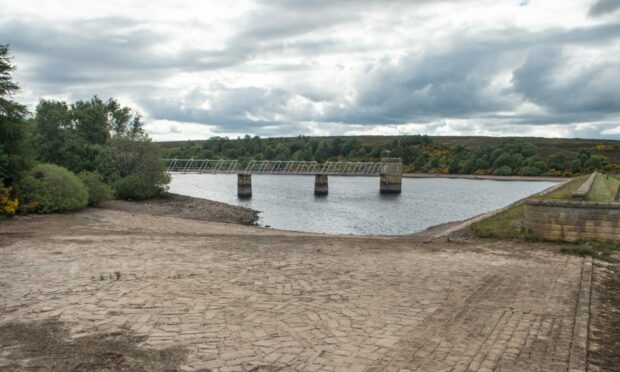A plea has been made to Scots to be “more efficient” with their water usage as reservoir levels fall to a record low.
Scottish Water has claimed levels in some of the nation’s reservoirs have fallen to 66% – the lowest recorded for this time of year since 2003.
They are blaming this summer’s lack of rain for the low water levels, along with an increased demand due to higher numbers of Brits holidaying in Scotland.
While the return of pupils to schools has eased the issue slightly, demand for water still remains 100 million litres per day above average – enough to fill 50,000 Olympic swimming pools.
Suggestions for water usage
While no restrictions or bans on water usage have been imposed, Scottish Water has suggested a series of guidelines on how to cut down water usage.
The suggested actions include using a watering can instead of a garden hose, not using jet washers, avoiding the use of paddling pools, turning taps off when brushing teeth and only using washing machines and dishwashers when fully loaded.
Kes Juskowiak, Scottish Water’s water operations general manager, said: “People might assume that, because we are at the end of summer, Scottish schools are back and there has been some heavy rain recently, there is no longer an issue with water supplies.
“That is absolutely not the case and maintaining normal supplies remains a massive challenge for us.
“We thank customers for using water efficiently when we asked back in July as we did see a reduction in the spike of over 200 million litres extra being supplied each day.
“However, demand remains between 50 and 100 million litres higher each day than the average for this time of year and our water storage and resources are low due to the continued generally dry weather.
“We can’t do anything about the low rainfall, but customers can continue to help us by using water efficiently.
“If people across the country – residents and visitors or holidaymakers – can take some small, simple steps to reduce their water use, they can make a big contribution towards our efforts to maintain normal supplies for everyone.”


